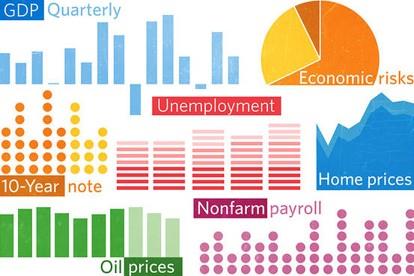Resources
Throughout my 30 years in the relocation industry, I’ve often been asked, “Do we need to think about hiring a relocation management company to help us; we only move about 5 people a year?” The answer is: Absolutely, yes! Relocation is time consuming and no small investment. It is necessary, but also, ever changing. Keeping up with tax rules, industry insights, current trends, IRS compliance, and ensuring your transferees are happy, well, that’s a lot
by: Craig Anderson, VP AECC Whether by personal choice or government mandate for office closings and stay at home orders, recent studies suggest that about one-half of the U.S. workforce now works from home. An MIT study, done in April of this year, noted that 34.1% of the American workforce, roughly 56 million Americans, shifted away from commuting to work since the pandemic began. Add that to the 14.6% that were already working remote and
New single-family home sales jumped in June, as housing demand was supported by low interest rates, a renewed consumer focus on the importance of housing, and a rising demand in lower-density markets like suburbs or exurbs. Census and HUD estimated new home sales in June at a 776,000 seasonally adjusted annual pace, a 14% gain over May and the strongest seasonally adjusted annual rate since the Great Recession. The April data (571,000 annualized pace) marks
Gross-up is the gross financial relief a company offers an employee, that will be due on their taxes, after a relocation has occurred. Its purpose is to relieve the employee of the tax burden associated with their relocation expenses paid on their behalf by their company. For example, if a relocation costs includes $5,000.00 taxable dollars, the employer may pay a total of $7,500.00 so that the employee gets the full benefit of the $5,000.00,
It’s been a main topic of many of our recent publications…and it apparently holds true. The gains shown from the latest NAHB’s forecast remain consistent that new home sales will be a leading sector in an emerging economic recovery. New home sales jumped in May, as housing demand was supported by low interest rates, a renewed household focus on housing, and rising demand in lower-density markets. Census and HUD estimated new home sales in May
Given the risk of an adverse IRS audit… (Did that get your attention?)…it is more important than ever that companies re-examine their home sale programs, periodically, to ensure that, in light of the anticipated costs of taking homes into inventory, they are comfortable with the level of inherent risk they are taking. A little over 30 years ago the IRS issued a landmark ruling on the tax issues associated with relocation programs. Revenue Ruling 72-339
Lump sum relocation programs should never be considered a “shelf-item.” They are not restricted to a one-size-fits-all tactic, nor should they be. Just as any relocation program can be tailored to your company’s business objectives and goals, your lump sum can as well. What’s important is understanding the underlying principles, assumptions, and basics of the lump sum philosophy so companies can make the best decision for their organization. Four Basic Options Trending Today Flat Lump
On Monday, June 8, 2020, the National Bureau of Economic Research (NBER) announced that the U.S. economy is officially in a recession. This did not come as a surprise to many, as the Bureau defines a recession this way: “A recession is a significant decline in economic activity spread across the economy, normally visible in production, employment, and other indicators. A recession begins when the economy reaches a peak of economic activity and ends when
Wow! I’m excited to see last Friday’s, U.S. Bureau of Labor Statistics release of their May Employment Situation Summary. Leading up to the release, most experts predicted the unemployment rate would jump up to approximately 20% from the 14.7% rate announced last month. The experts were shocked. The Wall Street Journal put it this way, “The May U.S. jobless rate fell to 13.3% and employers added 2.5 million jobs, blowing Wall Street expectations out of
On June 5, 2020, the Bureau of Labor Statistics will release the latest Employment Situation Summary, which will include the most current unemployment rate. It will be a horrific number. Many analysts believe unemployment could be greater than 20%. These numbers represent families across the nation that are not sure when (or if) they will return to work. The emotional impact on these households is devastating. Two things that will be interesting to learn are:
As we have recently shared, the housing market is poised to help our economic recovery take a strong step forward with most economists predicting this to occur as early as the second half of 2020. With this said, there is still however, considerable risks across states with economies heavily reliant on leisure, entertainment, and personal services being most vulnerable. Many analysts tend to agree and note that entertainment (including accommodation and restaurants), retail (except grocery
With the housing market staggered, to some degree, by the health crisis the country is currently facing, some potential purchasers are questioning whether home values will be impacted. The price of any item is determined by supply as well as the market’s demand for that item. Each month the National Association of Realtors (NAR) surveys “over 50,000 real estate practitioners about their expectations for home sales, prices and market conditions” for the REALTORS Confidence Index.
All eyes are on the American economy. As it goes, so does the world economy. With states beginning to reopen, the question becomes: which sectors of the economy will drive its recovery? There seems to be a growing consensus that the housing market is positioned to be that driving force, the tailwind that is necessary. Some may question that statement as they look back on the last recession in 2008 when housing was the anchor
With the U.S. economy on everyone’s minds right now, questions about the country’s financial outlook continue to come up daily. The one that seems to keep rising to the top is: when will the economy begin to recover? While no one knows exactly how a rebound will play out, expert economists around the country are becoming more aligned on when the recovery will begin. According to the latest Wall Street Journal Economic Forecasting Survey, which
As we continue to work through the health crisis that plagues this country, more and more conversations are turning to economic recovery. While we look for signs that we’ve reached a plateau in cases of COVID-19, the concern and fear of what will happen as businesses open again is on all our minds. This causes confusion about what an economic recovery will look like. With this in mind, it’s important to understand how economists are
A big challenge facing the housing industry is determining what impact the current pandemic may have on home values. Some buyers are hoping for major price reductions because the health crisis is straining the economy. The price of any item, however, is determined by supply and demand, which is how many items are available in relation to how many consumers want to buy that item. In residential real estate, the measurement used to decipher that
In April 2020, more than 90 percent of Americans were under a shelter-in-place order and many experts warned that the American economy was heading toward a recession, if it was not in one already. What does the U.S. housing market, and unemployment mean to relocation programs? Read this post from April 2020 to learn more. What is a Recession? According to the National Bureau of Economic Research: “A recession is a significant decline in economic
















